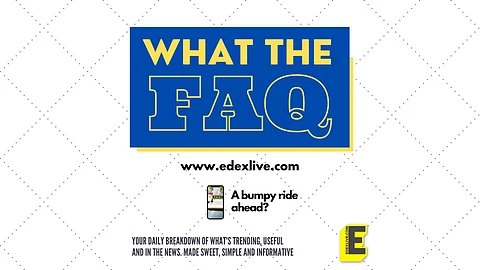

If you have ever booked a cab, auto or even a bike on any of the ridesharing apps, then you know what an ordeal it has become nowadays. Come to think of it, they were supposed to make our life easier! But now, surge prices and ride cancellations are a part of our daily routine.
But looks like all our collective rants have reached the Ministry of Consumer Affairs, Government of India, as it convened a meeting with a few cab aggregators. At the conference, which was held on Tuesday, May 10, Ola, Uber, Meru, Jugnoo and others were in attendance and they were quizzed about their policies and the rising public grievances against them. Sources say the meeting went on for almost an hour and post the meeting, the aggregators were unwilling to speak to the media.
But why was this conference scheduled only now? What did the mobility service providers have to say for themselves? All these and a lot more decoded here, with What The FAQ
Why was this conference called now?
With the Ministry of Consumer Affairs being flooded with complaints from the public regarding surge charges and more, the ministry scheduled a conference to have a dialogue with ride-hailing platforms and put an end to their alleged unfair trade practices. The ministry specifically mentioned the Jago Grahak Jago helpline and the numerous complaints they received via it.
Which issues were brought up by the ministry?
The ministry mentioned that it received complaints regarding several issues, namely, random surge pricing, the driver cancelling rides after accepting, drivers not switching on the AC, levying insurance and COVID-19 charges without consent of the commuter and varying charges for two different people travelling to the same drop point.
How are surge prices decided right now?
Both ride-sharing giants Ola and Uber follow 'surge pricing' which is decided on the 'real-time demand.' This simply means that the current multiplier can change every few minutes. Surge pricing in Uber automatically goes into effect when there are more riders in a given area than available drivers.
Why is cancellation policy such an issue?
The reasons for cancelling the ride are mainly two — drop location or the mode of payment. Sometimes, the driver cancels the ride but the cancellation charges are borne by the rider. To avoid complexities, the driver forces the rider to cancel the ride. The main concern here is that after accepting the ride first, the drivers cross-check the drop location and mode of payment via a call. If the drivers are not okay with either of the two, they either cancel the ride or sit on the rider's head, forcing them to cancel.
What did the Central Consumer Protection Authority (CCPA) commissioner and the aggregators say?
The aggregators have been given 30 days to answer the questions raised by the CCPA and also to disclose the algorithm being used with regard to the surge prices.
Consumer Affairs Secretary, Rohit Kumar Singh, said, "We have rigorously instructed cab aggregators to settle customer concerns,". He further added, "We have issued a warning to them to come up with possible answers to consumer concerns as soon as possible, or else the appropriate body would take criminal action against them."
Head of Central Operations, Uber India and South Asia, Nitish Bhushan said, “We are engaged with the Department of Consumer Affairs and deeply appreciate the feedback provided by them and will continue to provide our inputs. We strive to be the platform of choice for riders and drivers alike and continue to invest in technology and customer support to deliver an excellent experience for them. We are committed to continually raising the bar — for ourselves, our industry and most importantly, for the people who use our services.”
What is the next step to resolve this?
The CCPA authorities stated that they are likely to come up with an advisory and SOPs (Standard operating procedure) soon so that unfair trade practices do not violate the right of the consumers.
How badly is this affecting the public?
With drivers cancelling rides very frequently, the process is now time-consuming and stressful. One of the riders recollects her experience and shares that her Ola auto was cancelled, "not once but thrice." Driver cancelling the ride, or in some instances going MIA after learning about the mode of payment or the drop location, is an experience that many have been through already.
